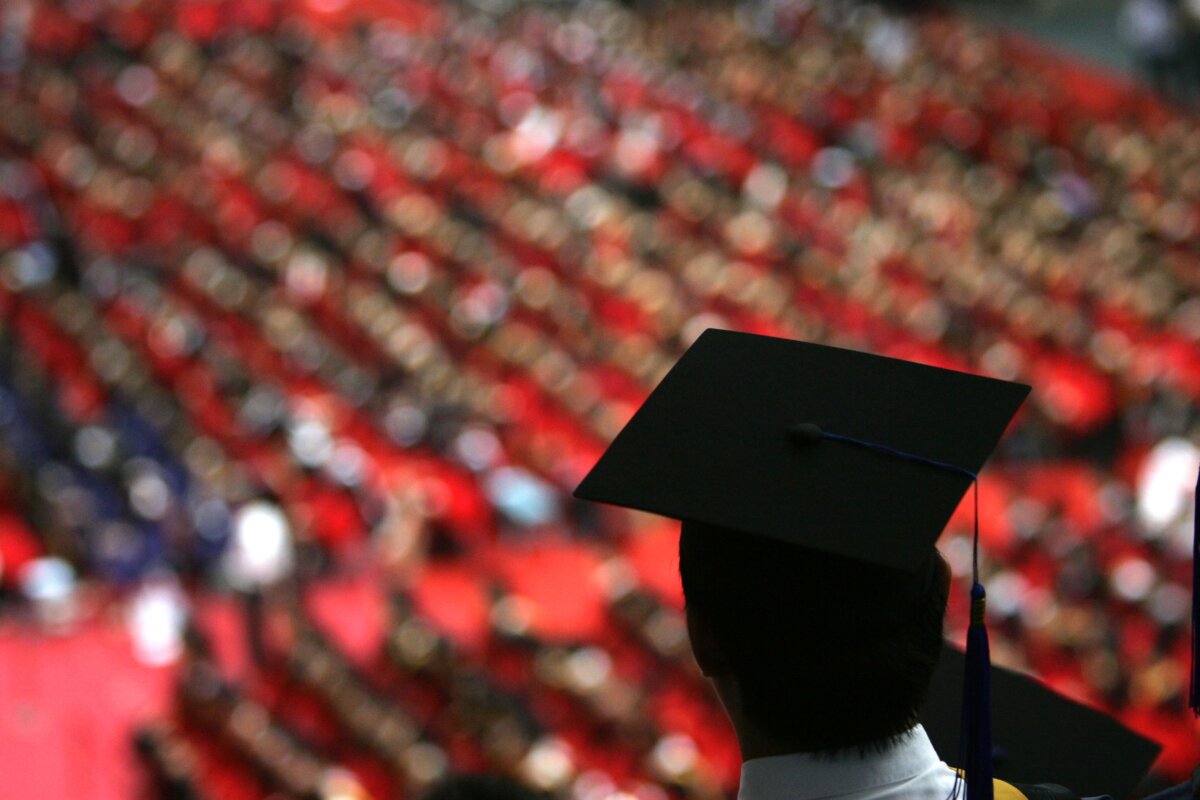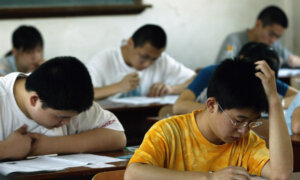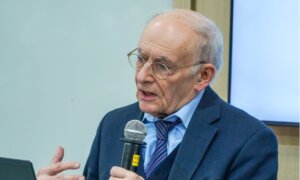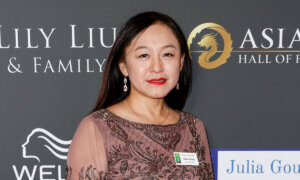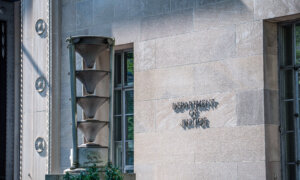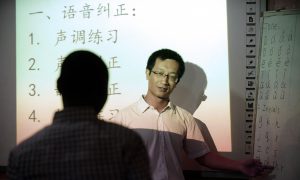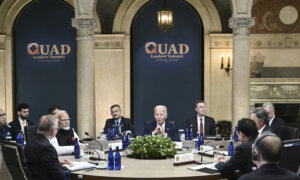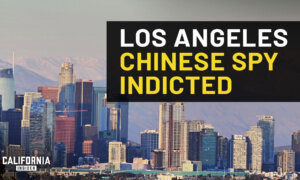Chinese universities are increasingly excluding foreign academics from professorships, according to a recent article by the head of a Beijing university. Analysts believe that the tight grip of the Chinese Communist Party (CCP) on academic freedom and its draconian measures against foreigners are at the root of the decline in overseas talent.
On April 8, Rao Yi, president of Beijing’s Capital Medical University, said in a lengthy blog post that most universities are close to abandoning the recruitment of overseas professors. According to Mr. Rao, the Chinese Academy of Sciences, a well-funded body with more than 100 research institutions among its members, currently has less than five international professors. A similar situation exists at major universities such as Peking University and Tsinghua University, which have almost no international professors.
Mr. Rao said universities and research institutes have ignored the CCP’s call to import talent. Instead, they increasingly shun foreign professors for fear they will be of a higher caliber than their own academic leadership, he said.
The day after Mr. Rao’s post, state media Sohu.com, published an article supporting Mr. Rao’s claim, stating that the number of professors imported from overseas has been almost “zeroed out.”
Mr. Rao’s article evades the point and seemingly excuses the CCP, writer and China expert Zhuge Mingling told The Epoch Times. Mr. Zhuge said the decrease in foreign professors is instead directly related to the CCP’s education system and suppression of free thought, not to concerns about foreign talent showing up in Chinese academic leadership.
Mr. Zhuge said the CCP dominates all organizations in China, including academia. This repressive political environment has long made it difficult for foreign academics to gain a foothold.
“Xi Jinping’s contradictory approach, of shouting that he wants to attract foreign investment, while simultaneously creating trouble for foreign companies and citizens, such as through the expanded Counter Espionage Law, has left people below him at a loss,” Mr. Zhuge said.
China’s newly amended Counter Espionage Law went into effect on July 1, 2023.
On Aug. 1, the CCP’s Ministry of National Security issued a statement on its WeChat account calling on all Chinese to report spies and announcing that those who do so would be rewarded for their efforts. “It is the responsibility of Chinese citizens to protect national security and stability and fight against all kinds of espionage,” the post reads.
Against this backdrop, universities avoid recruiting international professors out of fear of violating the Counter Espionage Law, Xia Yifan, a commentator living in Japan, told The Epoch Times.
Given the stepped-up security, academic leaders “dare not appoint foreign professors or grant them positions for fear of getting into trouble,” he said. “What if this person is accused of being a spy? The university will have to bear the responsibility for this.”
“These chaotic situations in the academic world are the result of the combination of the party’s dictatorship and the government-oriented party culture, a unique phenomenon in Chinese society,” Mr. Xia told The Epoch Times.
The Benefits of Catering to Party Interests
Mr. Zhuge noted that Mr. Rao mentioned a specific case: Westlake University, which has a significant number of foreign professors, outnumbering Peking and Tsinghua universities, and far exceeding other Chinese universities.Westlake University is a private university in Hangzhou, Zhejiang. Founded in 2018, it is recognized by the Ministry of Education and offers degrees in science, advanced technology, medicine, and biology.
The university is not afraid of recruiting foreign academics, most likely because it rests securely in the CCP’s favor.
Mr. Zhuge noted that the private school receives government support because its research direction was in line with the interests of the CCP. “Talents in biomedicine are exactly what the party needs,” he said. Those talents “can be applied to virus research, vaccine production, genetic analysis, and biochemical weapons manufacturing”—all areas of intense interest to the CCP.
The university was initially funded by several technology moguls and capitalists, including Sequoia Capital founder Shen Nanpeng, Hillhouse Investment founder Zhang Lei, Dalian Wanda chief Wang Jianlin, and Tencent founder Ma Huateng, among others.
The tycoons all share a political identity: “They can be termed ’red experts’ and red capitalists,'” Mr. Zhuge said, and are officially involved with the CCP in various capacities.
“In China, if you want to be a scholar or do scientific research, you must stand on the right side of the line and have a political title to protect yourself,” Mr. Zhuge said.

A classroom in Jack Ma's Hupan University, in Hangzhou, China, on March 24, 2015. (VCG/VCG via Getty Images)
Fortunes Rise or Sink According to ‘Red Gene’
By contrast, Hupan University, also in Hangzhou, is also a private institution. The elite business school was established in 2015 by Alibaba founder Jack Ma and eight other Chinese entrepreneurs and scholars.In April of 2021, authorities fined Mr. Ma’s Alibaba Group 18.23 billion yuan ($2.78 billion).
The following month, Chinese authorities including the Ministry of Education and the Public Security Bureau issued a joint document cracking down on the unapproved use of the terms “university” and “college” by private training institutions.
Soon after the document was released, Hupan University changed its name to Hupan Entrepreneurship Research Center.
The renaming of Hupan University was seen by observers as part of a broader move to bring Mr. Ma and the private companies and institutions he represents under tighter government control.
“The failure of Hupan University is due to the lack of political support, and its freedom and willingness to engage in private entrepreneurship are contrary to the ideological system of the CCP in controlling people,” Mr. Zhuge said.
